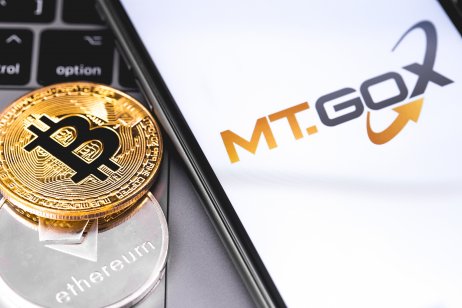Mt. Gox trustee sets Bitcoin creditor claims deadline ahead of $3bn BTC payout
13:11, 1 September 2022

Former clients of defunct Japanese cryptocurrency trading platform Mt. Gox, who were affected in a 2011 hack, have two more weeks to submit their claims in a rehabilitation process, Mt. Gox trustee wrote to creditors on Wednesday.
The Mt. Gox trustee Nobuaki Kobayashi, who is in charge of redistributing the stolen funds, pinned the beginning of a restriction period, during which he will stop accepting creditors' claims, to 15 September 2022.
The restriction period will end when the base repayments deadline is reached. The end of the restriction period will be set “in due course,” Kobayashi wrote.
BTC to US Dollar
In 2011, some 840,000 bitcoins (BTC) were stolen from the Mt. Gox platform which at the height of its operations handled 70% of all BTC trading worldwide. Three years later, the company managed to recover some 140,000 BTC and these coins have been locked in litigation since.
As the repayment process moves to a next stage, Mt. Gox creditors will be prohibited from assigning, transferring, succeeding their rehabilitation claims; providing their rehabilitation claims as collateral, or disposing of these claims by other means from 15 September.
After this date, Kobayashi will also “cease accepting applications for claim transfer procedures”.
While the claimaints are getting closer to getting their refunds, some suspect that the actual repayments may not be imminent.
“The trustee is not yet ready to pay out. There will be a KYC (know your customer) process, he has to explain how payouts will happen etc, he has to collect bank account data and so on,” a Mt. Gox creditor, Django Bits, wrote on Twitter.
“This will drag for months if not years. Nothing the trustee does is quick,” he added.
What is your sentiment on BTC/USD?
As mentioned before, the trustee is not yet ready to pay out. There will be a KYC process, he has to explain how payouts will happen etc, he has to collect bank account data and so on. This will drag for months if not years. Nothing the trustee does is quick.
— Django Bits (django.tez) (@djangobits) August 31, 2022
Mt. Gox creditors planning to HODL
In the recent weeks, some crypto traders and commentators took to social media to express fears that once Mt. Gox creditors recieve their refunds, they could rush to sell their BTC causing further selling pressure on the crypto king, which is currently trading below $20,000.
The total amount to be repaid - some 140,000 bitcoins - is now worth close to $3bn.
But a recent poll conducted on Reddit suggests that these fears may be overblown. Most of the Mt. Gox creditors are not planning on selling their refunded bitcoins, the survey revealed. Fifty-six percent of creditors stated they would not sell their coins.
Another 36 % said they would sell their BTC for cash and a further 8 % claimed that they would trade their returned bitcoins for other cryptocurrencies. A total of 486 creditors voted in the poll.
“I didn't wait eight years to sell in a bear market,” one creditor commented.
Markets in this article
Related topics


